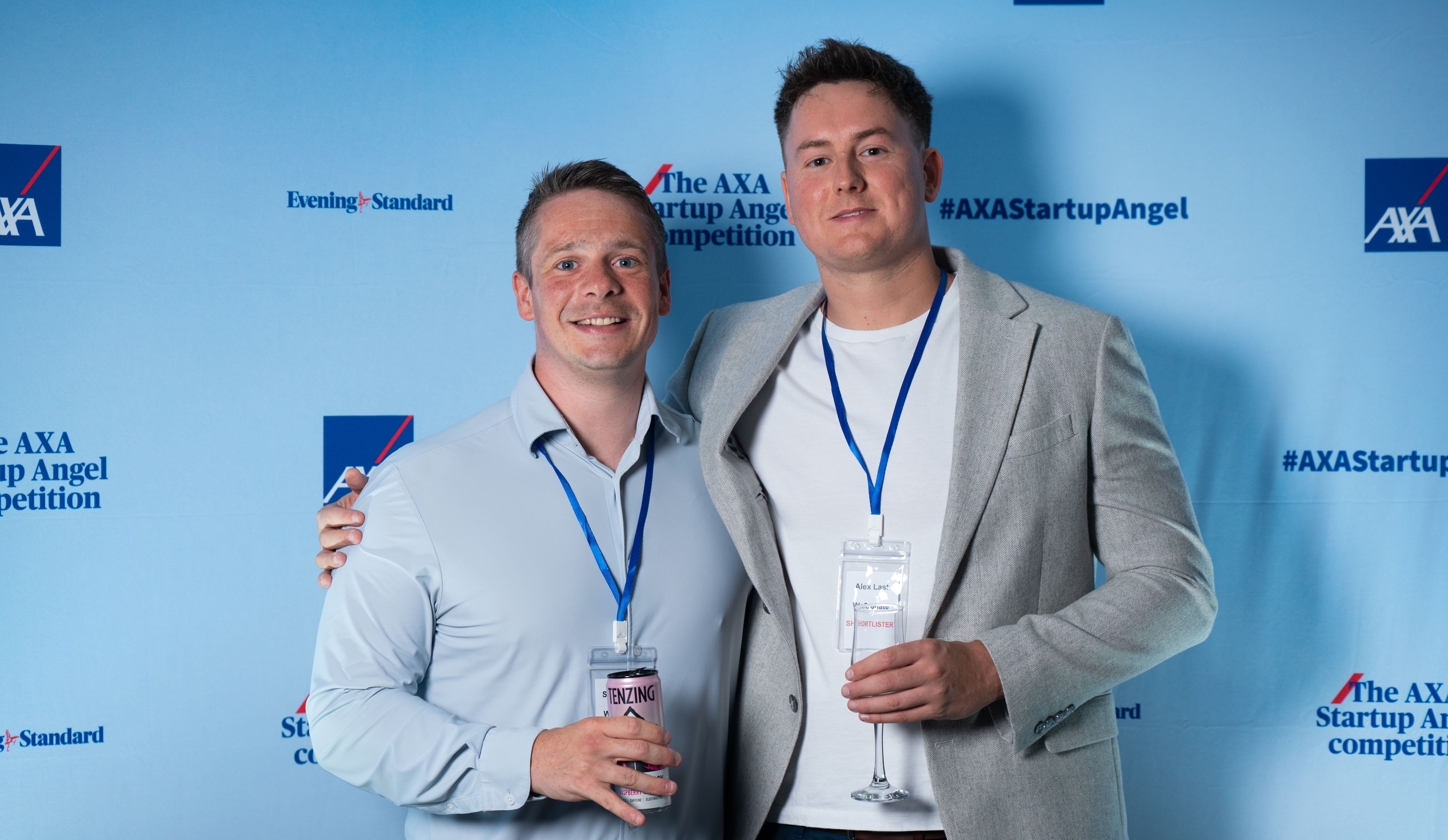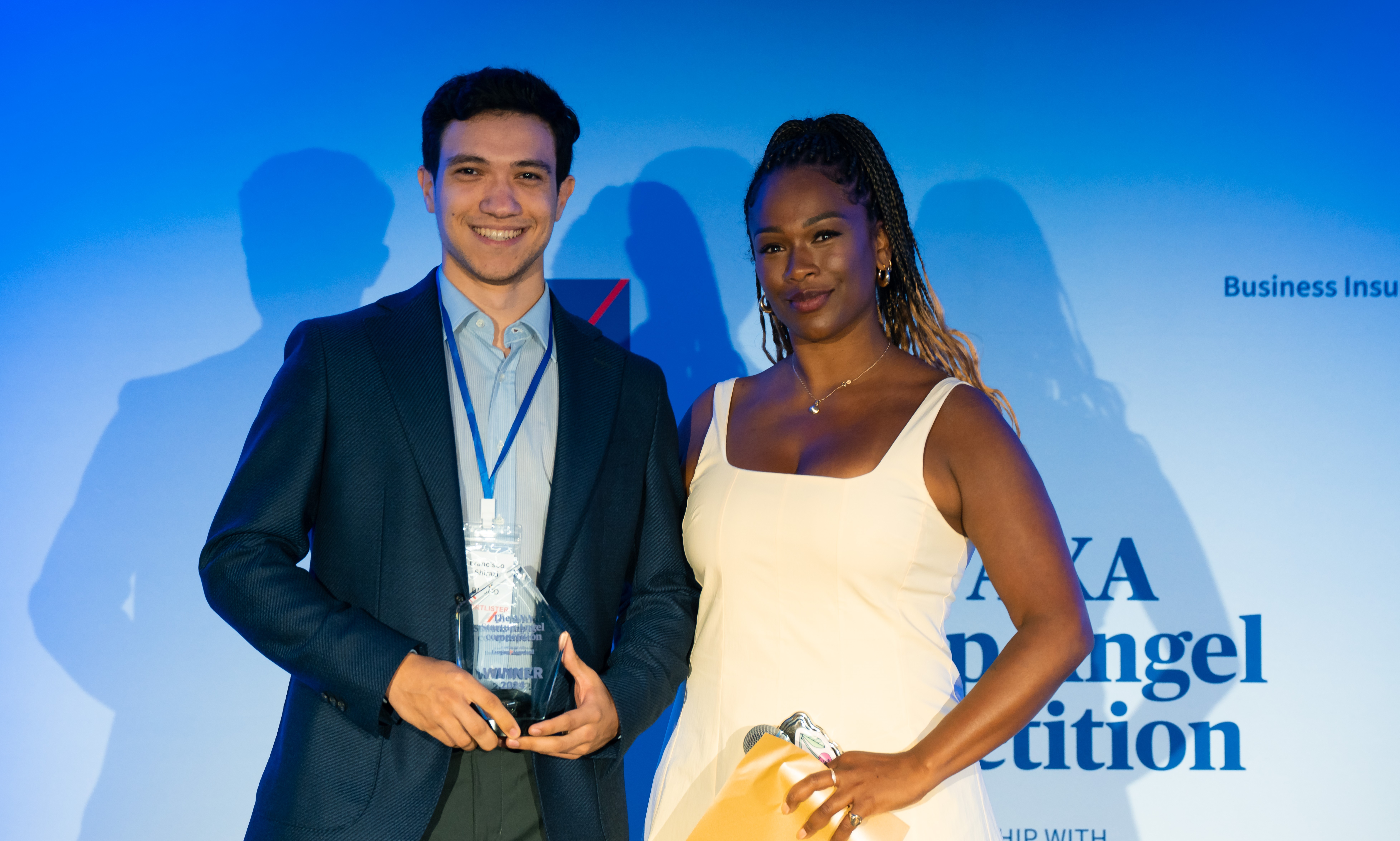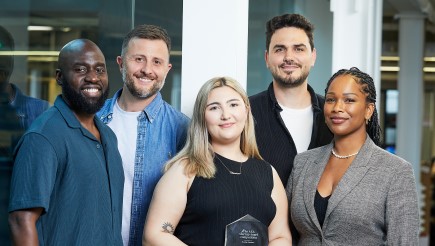In the AXA Startup Angel 2022 competition, we made winning more accessible than before by adding a few runner up prizes. Our silver winners had a £10,000 advertising budget with the Evening Standard and some mentoring from their team while our bronze winner received a £1,000 advertising budget.
We caught up with the four businesses that received one of our runner up prizes to hear more about what they're up to and how their businesses were developing. After listening to so many passionate businesses owners, there were a few themes that ran consistently through each chat.
If you're thinking about starting a business, here's a few tips, challenges, or concepts you might want to prepare for – based on real conversations with real startup founders:
Make sure you do your research
Every runner up talked about the importance of research for their business idea. Whether it is customer research to understand the problem you're trying to solve better or competitor research to identify the gap you're trying to fill, there's no doubt that you should do your due diligence when starting up.
In fact, AXA’s 2023 Startup Report shows that the number one piece of advice current startup owners would give to those thinking of starting a business is to do your research. Another report by Statista showed that 35% of startups failed because there was no market need – so the research on finding a gap in the market will be a huge key to your success.
Here’s what our AXA Startup Angel runner ups had to say about the research they did:
Emily, Employer Boxes: There’s quite a lot of research – quite wide research. At the start we were looking at retention rates, at different reports. I’ve got it all written down with different references.
Georgia Bondy, Well Adapt: I did a big market research survey to send out to people who could help me understand what they were looking for. It was a broad survey but helped me focus in on one area to start with. I also use a lot of ads to test what people are interested in. And I did some sort of like detailed interviews with people who wanted to just like sit and chat with me about what kinds of things they tried before.
Be prepared for many iterations
Another common theme that emerged when talking with our 2022 runner ups is that you have to have a lot of resilience. AXA’s career expert, Sarah Berry, even listed resilience as one of the top ten traits that business owners need. The idea you start with is almost never the idea you end with but if you stick with it and don't get discouraged you'll have a better, more refined idea by the end. A 2021 report by Wilbur Labs said that 55% of the founders surveyed reported pivoting to avoid failure – so if you have to make changes to your business in order to thrive, you’ll be in good company.
In fact, Pulathis Siriwardana of Handisure said that his child safety product went through 64 iterations before going to market – but that each iteration was better than the last and this process helped develop a product that parents love.
Here’s what a few of the other runner ups had to say about the cycle of iterations and testing that often happens when startup up and refining your business idea:
Sam Roscoe, MilkT: We spent months developing prototypes using our 3d printer, each ingredient has a slightly different texture so the density of the filters required a lot of optimization to provide a smooth tasting milk. No iteration is considered a failure, If you don’t get what you want, learn from the experience and develop a much better product. It may feel like a setback at the time, but really, it’s not.
Georgia: There’s been a lot of change in what I thought the first minimum viable product was going to be. It can be hard to understand what minimum is and how to cut things down. Minimum is a hard word to internalise, especially when you have a social purpose and want to help as many people as possible. Do whatever suits you in that moment and and just kind of reevaluate continuously to see if there needs to be a change.
Emily: Since the start, it hasn't changed too much but we have changed our name and altered our subscription model. It doesn't set us back though - it’s all about adapting as you go. Learning what works and what doesn’t.
Get feedback early and often
The best way to discover what your next iteration should be is to get feedback as soon as you can and as often as you can. 53.8% of founders surveyed by Wilbur Labs feel that listening to your customers is the best advice they could give to another founder and in AXA’s 2023 Startup Report, knowing your customer is in the top five best pieces of advice current startup owners would give.
Incorporating feedback from your target customer at every stage of the business development process will ensure that you're creating something that people really need. Here’s how the 2022 AXA Startup Angel runner ups feel about feedback and its value to their businesses:
Pulathis Siriwardana, Handisure: My feeling is we've got to listen to the customer and take onboard their feedback. When we received two negative reviews, and this was out of 166 five star reviews and 5000 purchases, these were looked into carefully. Even based on two reviews we just went back, improved the product. The newer and better version addresses that problem. A product is not just a piece of wood, it's a solution which people would like to embrace and use.
Sam: One of the biggest mistakes, is that people think they’ve got a fantastic and unique idea so they’re terrified about sharing it with other people for fear that they’re going to steal it. Some great ideas never leave the drawing board because of it.
My advice is to speak to as many people as possible, get as much input and feedback as you can. When you’re doing that you’ll probably meet people and make some really good connections, build your network and most likely improve the product that you’re working on. You’ll get your product to market much quicker because you’re learning from other people too.
Georgia: I’m really excited about getting feedback. I just really want to hear how its working for people, what bits needs to change. You know how sometimes you’re too close to a product and you stop being able to evaluate it anymore? Feedback helps so I can let what people want and needs guide next steps
Figure out a prioritisation method early
Small business founders often have to wear many hats when starting up. At the beginning there's usually not capacity to hire staff, so you'll need to learn how to balance many tasks and prioritise them early on. In both 2022 and 2023, AXA’s survey respondents put being organized in the top 3 traits that were crucial for success as a business owner.
But, there's so many different prioritisation strategies so it can take some trial and error – or combining a few of them – to figure out what works best for you.
Here’s how our runner ups handle prioritizing the many tasks they need to get done:
Kieran, Employer Boxes: In the morning I do a to do list. Sometimes I’ll also block off time in my calendar. I measure how much time I’m working within a week. For everything I’m doing just now, I’m timing it so that I can try and set 10 hours goal so that I’m doing at least 10 to 15 hours a week. It’s not being achieved as often as I would like but it’s good to actually time it.
Another major thing we've done, because you can get decision fatigue when there's so much to do, is to set up a main task board and then within that it breaks down tasks and sub-tasks so then every little thing you’re doing you can tick something off and see the flow and how it helps the bigger picture.
Because if you don’t have that flow set up, it can be very overwhelming. But once you’ve got it broken down into bite size chunks, it’s easy to see how to start the task with step one, then step two until it’s done. It makes it more manageable and not seem like a mammoth task.
It lets you focus in on one little step rather than looking at the huge picture of a million things to do. Break it down. And plan it out.
Georgia: The number one rule that I’ve been learning is absolutely don’t rush. Because it feels so often when you have a startup that everything must be done right now because you don’t have that much money, you don’t know when it’s going to run out, you don’t know if income is going to come in the way you think it’s going to happen. But by giving yourself tight timelines, you might do things that will do your business more harm than good in the long run.
Just get started – stop procrastinating!
Finally, don't take so long developing your idea that it never happens. Getting a prototype, testing things out, just taking that first step helps you learn so much. Fear can really hold you back from making your business dream a reality, so just get started.
Georgia: Perfect is the enemy of good – you can’t help anyone if you never start because you were trying to do everything at once. There is no right time. Yes it will be financially shaky and it is a risk – but there isn’t a right moment. So balance that risk and do it when it feels like that’s the only way to move forwards properly.
Kieran: Don’t take too long. Usually with new businesses they take ages or years to perfect everything. The first time I did a business I would spend days changing small things on the website and it was just a waste of time. So from my experience, don’t tray and perfect everything. Ask “Is this going to move the needle?” and if it isn’t, look for a quick workaround that won’t look bad!
Sam: If you've got an idea of what you want to do, make use of free resources like YouTube, Canva and open source software to bring it to life. Sketch your idea on a piece of paper or create a model, as soon as you've got something physical in your hand, it's much easier to talk to somebody about it and gauge whether or not it's a viable product. Once you have that working prototype, get a pitch deck together and target some investors.
Time to get started
If you’re thinking about starting a business or have a business that’s under a year old, be sure to look at AXA’s Startup Angel competition. You could win £25,000 in funding, mentoring from some of the UK’s leading business owners and a year of insurance thanks to us.
All links are checked and valid at time of publishing, 22 May 2023.






